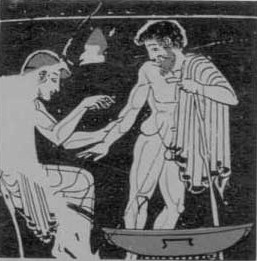
The Selfish Gene is a 1976 book on evolution by Richard Dawkins, in which the author builds upon the principal theory of George C. Williams's Adaptation and Natural Selection (1966). Dawkins uses the term "selfish gene" as a way of expressing the gene-centred view of evolution as opposed to the views focused on the organism and the group, popularising ideas developed during the 1960s by W. D. Hamilton and others. From the gene-centred view, it follows that the more two individuals are genetically related, the more sense it makes for them to behave selflessly with each other.

The Paleolithic diet, Paleo diet, caveman diet, or stone-age diet is a modern fad diet requiring the sole or predominant eating of foods presumed to have been available to humans during the Paleolithic era.
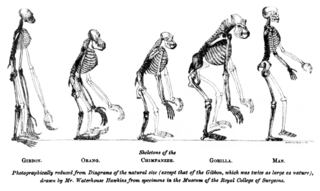
Evolutionary medicine or Darwinian medicine is the application of modern evolutionary theory to understanding health and disease. Modern medical research and practice have focused on the molecular and physiological mechanisms underlying health and disease, while evolutionary medicine focuses on the question of why evolution has shaped these mechanisms in ways that may leave us susceptible to disease. The evolutionary approach has driven important advances in our understanding of cancer, autoimmune disease, and anatomy. Medical schools have been slower to integrate evolutionary approaches because of limitations on what can be added to existing medical curricula.

Collapse: How Societies Choose to Fail or Succeed is a 2005 book by academic and popular science author Jared Diamond, in which Diamond first defines collapse: "a drastic decrease in human population size and/or political/economic/social complexity, over a considerable area, for an extended time." He then reviews the causes of historical and pre-historical instances of societal collapse — particularly those involving significant influences from environmental changes, the effects of climate change, hostile neighbors, trade partners, and the society's response to the foregoing four challenges— and considers the success or failure different societies have had in coping with such threats.
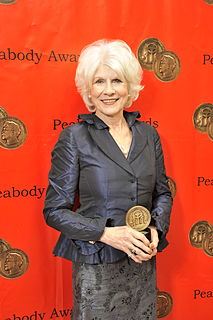
Diane Rehm is a retired American public radio talk show host. Her program, The Diane Rehm Show, was distributed nationally and internationally by National Public Radio. The show was produced at WAMU, which is licensed to American University in Washington, D.C.

Lewis WolpertCBE FRS FRSL FMedSci is a South African-born British developmental biologist, author, and broadcaster. Wolpert is recognized for his work on the intracellular positional information that guides cellular development. In addition, he has published several popular science books.

Evolutionary ethics is a field of inquiry that explores how evolutionary theory might bear on our understanding of ethics or morality. The range of issues investigated by evolutionary ethics is quite broad. Supporters of evolutionary ethics have claimed that it has important implications in the fields of descriptive ethics, normative ethics, and metaethics.
Satoshi Kanazawa is an American-born British evolutionary psychologist and author. He is currently Reader in Management at the London School of Economics. His work uses evolutionary psychology to analyse social sciences such as sociology, economics, and anthropology. Kanazawa has been very controversial on subjects relating to race and intelligence, health and intelligence, multiculturalism, as well as the relationship between physical attractiveness and intelligence. He attributes this to "political correctness" and "censorship", while his critics claim that what he does is "bad science" and "racist".
Joseph L. Graves, Jr., is an American Scientist and the Associate Dean for Research and Professor of Biological Studies at the Joint School for Nanoscience and Nanoengineering which is jointly administered by North Carolina Agricultural and Technical State University and UNC Greensboro. His past research has included an examination of the evolution of life history and physiological performance in Drosophila, a genus of small flies often called fruit flies. His current work includes the genomics of adaptation, as well as the response of bacteria to metallic/metallic oxide nanoparticles. A particular application of this research has been to the evolutionary theory of aging. Using his background in evolutionary biology, he has also written two books that address myths and theories of race in American society. Graves has made appearances in six documentary films on these general topics. He has been a Principal Investigator on grants from the National Institute of Health, National Science Foundation and the Arizona Disease Research Commission.
The evolutionary psychology of religion is the study of religious belief using evolutionary psychology principles. It is one approach to the psychology of religion. As with all other organs and organ functions, the brain's functional structure is argued to have a genetic basis, and is therefore subject to the effects of natural selection and evolution. Evolutionary psychologists seek to understand cognitive processes, religion in this case, by understanding the survival and reproductive functions they might serve.

Dawkins vs. Gould: Survival of the Fittest is a book about the differing views of biologists Richard Dawkins and Stephen Jay Gould by philosopher of biology Kim Sterelny. When first published in 2001 it became an international best-seller. A new edition was published in 2007 to include Gould's The Structure of Evolutionary Theory finished shortly before his death in 2002, and more recent works by Dawkins. The synopsis below is from the 2007 publication.

Thomas Hager is an American author of popular science and narrative nonfiction.
Marianne J. Legato, MD, FACP, is an internationally known academic physician, author, and lecturer and globally recognized expert in gender-specific medicine, the science of how normal human function and the experience of the same disease vary as a function of gender/biological sex. Legato is an expert on the sex-specific aspects of men's and women's health and is the founder and director of the Partnership for Gender-Specific Medicine at Columbia University. In 2008, she established the non-profit Foundation for Gender-Specific Medicine. She has devoted much of her research to the subject of women and heart disease and in 1992 won the American Heart Association's Blakeslee Award for writing the best book on cardiovascular disease written for the lay public.
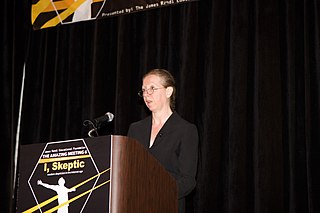
Sharon Begley is an American journalist who is the senior science writer for Stat, the publication from The Boston Globe that covers stories related to the life sciences. She received her Bachelor of Arts degree from Yale University in 1977, where she regularly contributed articles to the Yale Scientific Magazine. She has written recurring columns and feature articles in several mainstream publications on a wide variety of scientific topics. Begley is also an author and speaks at universities and gatherings of both professional and community organizations. Her topics include the neuroplasticity of the brain, issues affecting science journalism, education, and other topics she has researched during her career. She has appeared on radio and television to discuss the topics covered in her articles and books. A prolific writer, Begley has attracted both praise and criticism.

Stuart J. Firestein is the chair of the Department of Biological Sciences at Columbia University, where his laboratory is researching the vertebrate olfactory receptor neuron. He has published articles in Wired magazine, Huffington Post, and Scientific American. Firestein has been elected as a fellow by the American Association for the Advancement of Science (AAAS) for his meritorious efforts to advance science. He is an adviser to the Alfred P. Sloan Foundation program for the Public Understanding of Science. Firestein's writing often advocates for better science writing. In 2011 he released the book Ignorance: How it Drives Science, and in 2016, Failure: Why Science Is So Successful.
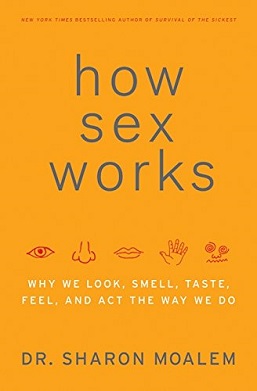
How Sex Works: Why We Look, Smell, Taste, Feel, and Act the Way We Do is a 2009 book by evolutionary biologist and New York Times bestselling author Sharon Moalem, published by HarperCollins. The book examines the scientific reasons people are attracted to one another including the evolutionary underpinnings of sexual attraction, monogamy, and sexual orientation.
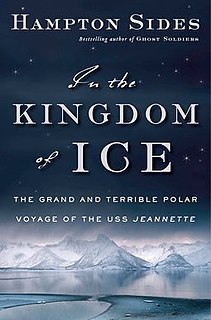
In The Kingdom of Ice: The Grand and Terrible Polar Voyage of the USS Jeannette (Doubleday), 2014, is a non-fiction book written by the author and historian Hampton Sides. The book tells the true story of the 1879–1881 arctic voyage of the USS Jeannette and the crew's struggle to survive after having to abandon their ship in the polar ice.
Barbara Natterson-Horowitz is a Visiting Professor in the Department of Human Evolutionary Biology at Harvard University.. She is also a cardiologist and professor at University of California, Los Angeles (UCLA). She is a New York Times bestselling author of the book Zoobiquity, coauthored with Kathryn Bowers. Natterson-Horowitz and Kathryn Bowers coined the term "zoobiquity" by combining zo and ubiquity to describe the relationship between animal and human health..
Ellen Rose Meara is a professor at The Dartmouth Institute for Health Policy and Clinical Practice, part of Dartmouth College in New Hampshire, United States. Her research is in the fields of health economics and health policy. She is also a faculty research fellow at the National Bureau of Economic Research and an adjunct professor in economics at Dartmouth College.

